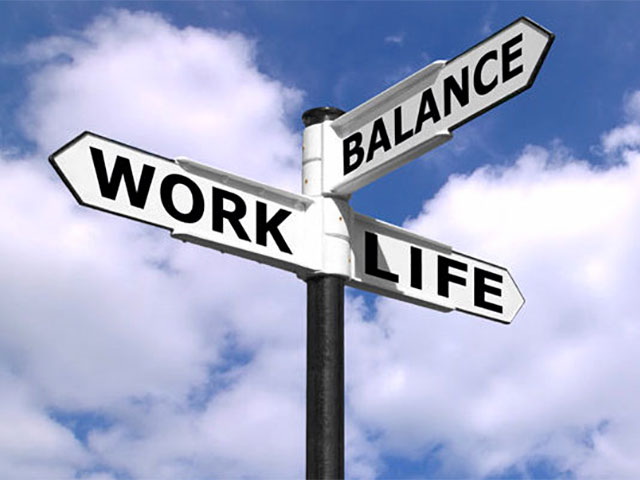Happy and Healthy Employees Don’t Take Sick Days
One thing I have learned as an employer (and appreciated as an employee) is that if you want your employees to come to work keep them healthy and if you want to have them come to work AND produce keep them healthy AND happy. This means offering perks, hiring hr consultants to deal with any issues quickly, having a relaxed atmosphere, keeping on top of deadlines, and giving out surveys so you know what to improve.
Unhappiness among workers in the United States has been estimated to cost a whopping $300 billion a year in lost productivity. A recent study shows that Americans are becoming more unhappy with their jobs, their work environment, work responsibility and their employers. This invariably leads to a drop in productivity and an increase in absenteeism. How one feels about their job has a profound effect on workers’ creativity, productivity and commitment.
The success of a business depends purely on the contribution of all the employees. Many business owners are constantly trying new innovative ways to improve the atmosphere at the workplace, so that their employees can increase productivity. For example, a team of entrepreneurs and engineers at Profit provides performance management software to their clients to help their business transform into metrics-driven and objective-focused organizations.
The research shows that a healthy lifestyle will not only keep your employees coming to work but make them more productive as well.
- Normal-weight men miss an average of 3.0 days each year due to illness or injury
- In comparison, overweight and obese men (BMI 25-35), miss approximately 2 more work days per year than normal-weight men, a 56% increase in missed days
- Normal-weight women miss an average of 3.4 days each year due to illness or injury
- In comparison obese women (BMI of 30-40) miss between 5.2 and 8.2 days a year which is up to a 141% increase in missed days
- Workers who ate healthy the entire day were 25 percent more likely to have higher job performance.?• Workers who ate five or more servings of fruit and vegetables on four or more days in a week were 20 percent more likely to have higher job performance.?• Workers who exercised for 30 or more minutes on three or more days a week were 15 percent more likely to have higher job performance.
Here are some ways you can help your employees be more productive at work:
- Make health and wellness a priority in your office. Develop and Institute a workplace wellness program…offer healthy food options at work, bring in a fitness instructor or massage therapist weekly to offer wellness services at the office. Invest in a gym membership or other fitness membership for your employees. Studies show that a workplace wellness program could offset $1 trillion a year in lost worker productivity.
- Find out what motivates your employees and tap into that. In fact, discretionary effort can be encouraged in healthy ways. Workers will be more productive if they feel their work has meaning. Ask the staff for input on current or future projects. Get everyone involved and they’ll feel motivated. For example, if you’re wondering ‘what is a file management software?’, ask your employees and see if they know anything about it. If they do, ask them if they think it’ll help with productivity in the workplace? Everyone from the board room to the cleaning staff has opinions and people like to feel they are being heard. People are happier and can do more when they feel that they are contributing to a worthwhile purpose.
- Encourage your staff to use their allotted vacation time. Personal decompression is crucial in maintaining a healthy balance of work and play. Time away rejuvenates the mind and body, and they will return refreshed and energized. Sometimes getting away from work is the best way to make us more productive when we are there.
Working adults spend more of their waking hours at work than anywhere else. Work should enhance, not kill, the human spirit.
Making your staff’s health and happiness a priority will not only improve their creativity, commitment and productivity but it will keep them loyal and supportive. Aren’t those the kind of employees we set out to find in the first place.










 Deering Estate
Deering Estate
 Massage Envy South Miami
Massage Envy South Miami
 Calla Blow Dry
Calla Blow Dry
 My Derma Clinic
My Derma Clinic
 Sushi Maki
Sushi Maki
 Sports Grill
Sports Grill
 The Healthy Kitchen
The Healthy Kitchen
 Golden Rule Seafood
Golden Rule Seafood
 Malanga Cuban Café
Malanga Cuban Café

 Kathleen Ballard
Kathleen Ballard
 Panter, Panter & Sampedro
Panter, Panter & Sampedro
 Vintage Liquors
Vintage Liquors
 The Dog from Ipanema
The Dog from Ipanema
 Rubinstein Family Chiropractic
Rubinstein Family Chiropractic
 Your Pet’s Best
Your Pet’s Best
 Indigo Republic
Indigo Republic




 ATR Luxury Homes
ATR Luxury Homes


 2112 Design Studio
2112 Design Studio
 Hamilton Fox & Company
Hamilton Fox & Company
 Creative Design Services
Creative Design Services
 Best Pest Professionals
Best Pest Professionals
 HD Tree Services
HD Tree Services
 Trinity Air Conditioning Company
Trinity Air Conditioning Company
 Cisca Construction & Development
Cisca Construction & Development
 Mosquito Joe
Mosquito Joe
 Cutler Bay Solar Solutions
Cutler Bay Solar Solutions


 Miami Royal Ballet & Dance
Miami Royal Ballet & Dance
 Christopher Columbus
Christopher Columbus
 Pineview Preschools
Pineview Preschools
 Westminster
Westminster
 Carrollton
Carrollton
 Lil’ Jungle
Lil’ Jungle
 Frost Science Museum
Frost Science Museum
 Palmer Trinity School
Palmer Trinity School
 South Florida Music
South Florida Music
 Pinecrest Orthodontics
Pinecrest Orthodontics
 Dr. Bob Pediatric Dentist
Dr. Bob Pediatric Dentist
 d.pediatrics
d.pediatrics
 South Miami Women’s Health
South Miami Women’s Health

 The Spot Barbershop
The Spot Barbershop
 My Derma Clinic
My Derma Clinic




 Miami Dance Project
Miami Dance Project

 Rubinstein Family Chiropractic
Rubinstein Family Chiropractic
 Indigo Republic
Indigo Republic

 Safes Universe
Safes Universe
 Vintage Liquors
Vintage Liquors
 Evenings Delight
Evenings Delight





 Atchana’s Homegrown Thai
Atchana’s Homegrown Thai
 Baptist Health South Florida
Baptist Health South Florida

 Laser Eye Center of Miami
Laser Eye Center of Miami
 Visiting Angels
Visiting Angels
 OpusCare of South Florida
OpusCare of South Florida

 Your Pet’s Best
Your Pet’s Best





 HD Tree Services
HD Tree Services
 Hamilton Fox & Company
Hamilton Fox & Company


 Creative Design Services
Creative Design Services